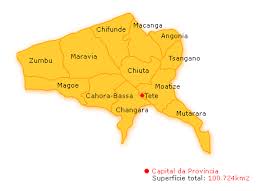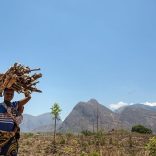Mozambique: Government to cut "ineffective" tax exemptions, tax informal economy, use AI
10,000 jobs created in Tete in first half of 2017

File photo / Minister Vitória Diogo
The province of Tete created close to 10,000 jobs in the first half of this year, with Mozambique Leaf Tobacco (MLT) the largest contributor to 1,624 permanent jobs, beating the civil service, mining companies Vale and Jindhal, and construction.
Minister of Labour, Employment and Social Security Vitória Diogo declared during a visit to the province that Tete, one of the largest in terms of number of industries, created a total of 9,786 jobs in the first half of 2017.
The private sector played a leading role, with Mozambique Leaf Tobacco, Vale Mozambique, Jindhal Africa and Minopex featuring.
As a way to improve employability in Tete, 4,000 citizens have received vocational training. During the same period, 3,910 workers and 277 enterprises became part of the social security contribution system in the province.

In the same period, 336 self-employed workers registered, giving them the opportunity to save for the future.
“It is important to urge all employers and self-employed workers to honour their commitments by channelling social security contributions, thus avoiding both the accumulation of system debt and the slimming down of workers’ rights to pensions and other benefits,” Minister Diogo said.
Diogo explained that, in the context of social protection, the government was reviewing the Mandatory Social Security Regulation to encourage longer working lives and discourage early retirement.
Vitória Diogo further said that the Centre for Labour Mediation and Arbitration, which aims to contribute to job security and industrial harmony, made 384 visits and detected irregularities or infractions that resulted in warnings.
The minister also delivered a mobile training unit, called “Escolas que Andam”, in the province’s Marara district, which will benefit 24 trainees attending free two-month locksmithing and electrician courses.
Human capital formation is one of the five pillars of the government’s Five-Year Plan and at the epicentre of Mozambique’s development, Diogo said.
Recognising the vital role of vocational training, the government decided to carry out structural reforms, merging the former INEFP and IELAC and creating the Institute for Vocational Training and Labour Studies Alberto Cassimo (IFPELAC), an institution dedicated to the provision of technical vocational training nation-wide.
In 2015 the government created the so-called “Walking Schools” to provide the young population in rural with technical vocational training. Minister Diogo said that the mobile units had a strong social component.
A mobile agro-processing unit allocated to the province in 2015 had trained 265 young people in the Angónia, Changara, Tsangano, Chiúta, Chifunde and Zumbo districts.
The new unit was expected to reach all districts and the largest number of beneficiaries. To date, the mobile units had trained 4,494 beneficiaries throughout the country, Diogo said.
She recommended the young beneficiaries treat the opportunity responsibly, exploring to the maximum what the trainers have to teach and asking questions in case of doubt so that at the end of the course they had the necessary tools and skills to offer quality services to the community, and consequently generate employment for other people.












Leave a Reply
Be the First to Comment!
You must be logged in to post a comment.
You must be logged in to post a comment.